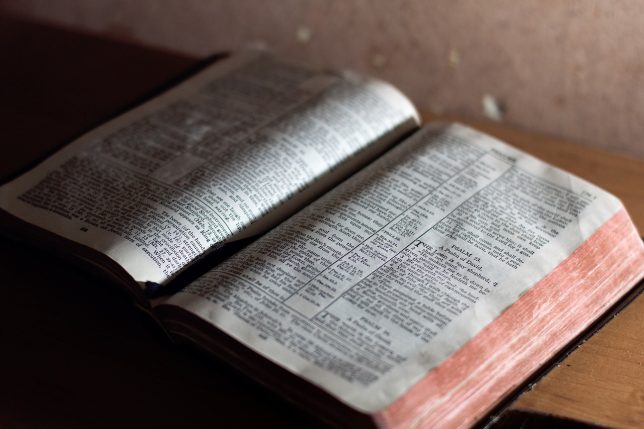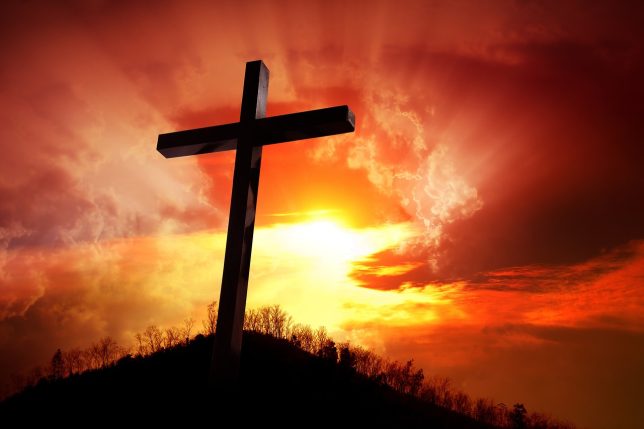As much as the world and sin try to convince us that there are all these things that make us different from one another, we really do have far more in common than that is different. But one of the few things that do illuminate our differences is how we respond to adversity – particularly, whether we rise in face of it with the blessed assurance, distinct knowledge, and hope that it exists not to impugn, but to strengthen us. Or, whether we shrink in the face of adversity and allow it to derail us, disabling us to grow and mature as God intended. I want to speak specifically to the latter because I know and I’m sure you know someone and maybe you are someone who is stuck in the past and who excuses your behavior by saying it’s how I was raised or anything really, to avoid taking accountability for the consequences of your actions. Trauma is a very serious thing and many of us have had bad experiences with others, to say the least. We’ve been hurt, ostracized, neglected, and just made to feel as though we are absolutely nothing. But by God’s grace, we don’t have to become the pain that has consumed us. We do not have to become that which has plagued us.
While some of us have done our very best not to internalize the trauma so as not to hurt others, others of us excuse how we hurt others with our trauma. While I am not reducing the trauma many people experience, I am challenging us to address it in such a way that it does not entangle us to the past, but rather allows us not to repeat what has been heaped on to us, instead, cling to the intrinsic light of God that abides within us.
Allow me to use a very contemporary example. America was founded on July 4th, 1776 after a war fought for our freedom against Great Britain. We fought to be free of Great Britain’s tyrannical rule and to be a nation all our own, and that we did. However, one of the very first things we did was draft and ratify a governing document that excluded Black people, women, and natives. So, in actuality, we fought for the freedom of a very specific class of people. We were a part of a trading system that took millions of people away from their land for free labor, not to mention the millions of Natives we killed upon our arrival on the land before our establishment as a nation. My point is, as a nation, we internalized the tyranny of Great Britain and as a result, trauma, violence, and inequality are now interwoven into the American framework.
We see very plainly and intricately in our own country the long-term effect of unaddressed trauma. Our nation is fraught with the very injustice it was founded in, and the reverberations of the original sin of slavery continue to plague us to this very day. To this day, America is a country that is doomed to repeat its history because of amends it refuses to make because it refuses to truly look itself in the mirror and make the many changes it should.
Now how does that translate to us? We are impacted all the time by people, and that can be negative or positive, but how we choose to perceive it us is ultimately up to us. Taking it a step further, however, you choose to respond is just that – a choice. We hear people say all the time, “I’m like this because…” and oftentimes, it is a way of excusing or explaining away something disrespectful they’ve said or done. But we get to a certain age where there is no one and nothing to blame for what we have done but ourselves. If you can recognize you have handled a situation inappropriately or that there’s something amiss in your conflict resolution, or lack thereof, as well as just the way you communicate and deal with things on a daily basis, then you have the wherewithal to make a change, to do and be better. The first step to making a change is admitting first that there is a problem; so whether you’re reacting in a particular way because that’s how you were raised, you were mimicking something you saw, or you claim you just don’t know any better, that only gets you so far and can only work for so long.
We want to be adults, to be on our own, to do whatever we want under the guise that that is what adulthood is and yet, the things that make us adults and are markers of maturity like taking accountability, extending grace, enduring in the face of adversity, and forging a new path different than the dysfunctional one we may know – those are the things we don’t want to do or embrace. But our perspective is all wrong anyway. As my father has always said, hurt people hurt people, and if we can see those who have hurt us as hurt people and not enemies or foes, then we can extend grace. If we can extend grace, then we heal and perhaps show them a love they have not known, and in that extension of grace and love, they see God and by His grace, not only have you shown them a different way, you have created a path that was otherwise not perceivable to you.
We see adversity sometimes as a punishment but never as an opportunity to bring glory to God. In fact, we sometimes forsake that God is in the midst working within us and for us and it is that error that will lead us astray and make us resentful instead of triumphant every time. Trouble doesn’t last always, and the fact that you have overcome that which existed to destroy you, be it from God or not, is a testimony; it is not an excuse, it is not anything to escape, but to embrace!
The very easy thing to say is, “That’s just the way I am or that’s how I was raised,” but something my father has always said that his father told him is don’t make excuses, make an effort. We don’t have to mimic what we see, especially if we know it’s toxic. God gave each of us the gift of free will and while we are exposed to many things, people, and attitudes, the choice is ours. Gandhi charged us all when he said to be the change we seek and we can start to do that by separating what we have experienced from how others experience us because the two don’t have to be one and the same.
We must always be in the posture of Christ. Christ was sentenced to be crucified for a crime He did not commit by the very people He came to save and at no point did He come down from the Cross or tell God how he’d been lied on and mocked. He created a path and it is by His very life that we now live, move, and have our very being and by His stripes that we are healed. There is always another way, and when we embrace what is possible, therein embracing God’s power, better can be ahead.







